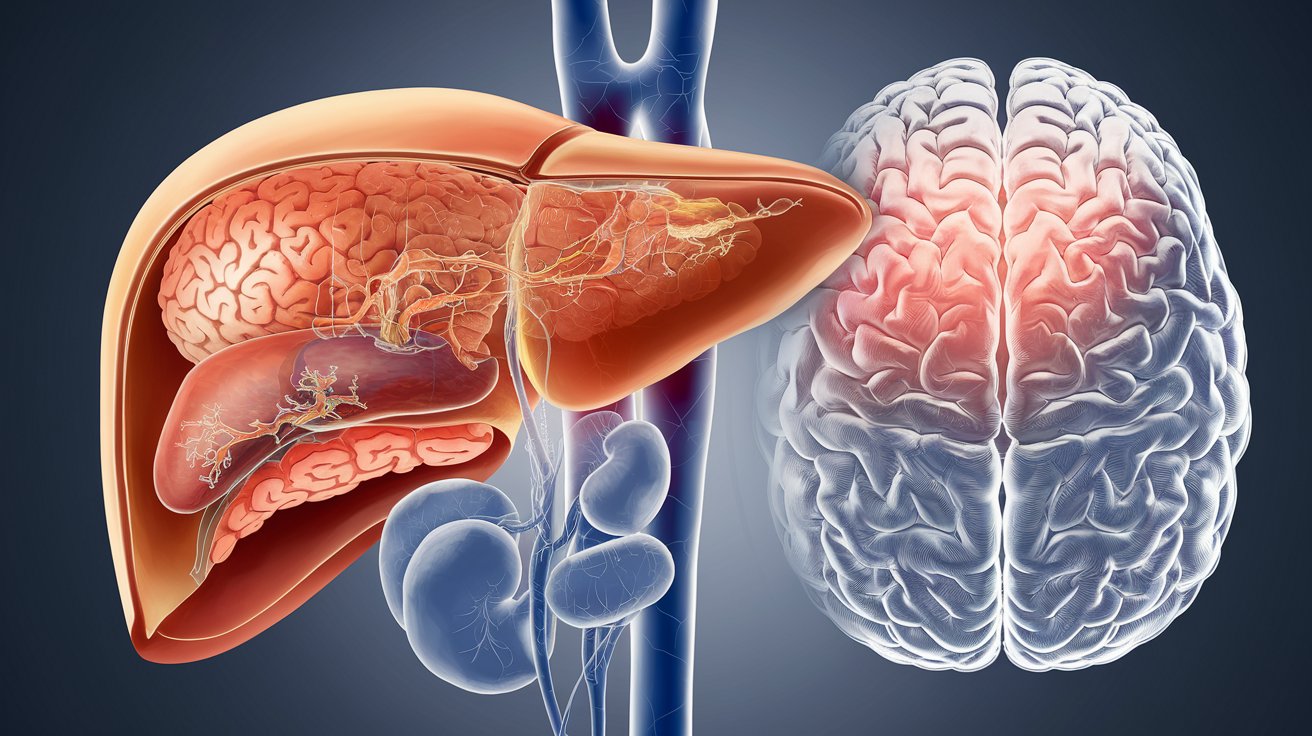
Hepatic fibrosis renal cysts mental retardation is a rare genetic disorder that affects multiple organs. Hepatic fibrosis involves the buildup of scar tissue in the liver, which can lead to liver dysfunction. Renal cysts are fluid-filled sacs in the kidneys that can impair kidney function. Mental retardation refers to developmental delays and cognitive impairments. This condition is often inherited and can vary widely in severity. Understanding these three components is crucial for managing the disorder effectively. In this post, we'll explore 25 essential facts about this complex condition, shedding light on its causes, symptoms, and potential treatments.
Key Takeaways:
- Hepatic fibrosis is excessive scar tissue in the liver, caused by chronic liver diseases and alcohol abuse. Early diagnosis and lifestyle changes can prevent serious complications like liver failure and cancer.
- Renal cysts are fluid-filled sacs in the kidneys, often harmless but can cause pain and high blood pressure. Regular check-ups and managing underlying conditions can prevent complications.
Understanding Hepatic Fibrosis
Hepatic fibrosis is a condition where excessive scar tissue builds up in the liver. This can lead to serious health issues if not managed properly. Here are some key facts about hepatic fibrosis:
- Scar Tissue Formation: Hepatic fibrosis occurs when the liver tries to repair itself, leading to the formation of scar tissue.
- Causes: Chronic liver diseases like hepatitis B and C, alcohol abuse, and non-alcoholic fatty liver disease can cause hepatic fibrosis.
- Symptoms: Early stages often show no symptoms, but as it progresses, symptoms like fatigue, jaundice, and abdominal pain may appear.
- Diagnosis: Liver biopsy, imaging tests, and blood tests are commonly used to diagnose hepatic fibrosis.
- Stages: It progresses through stages, from mild fibrosis to cirrhosis, which is severe scarring.
- Treatment: Addressing the underlying cause, medications, and lifestyle changes can help manage hepatic fibrosis.
- Reversibility: Early-stage fibrosis can be reversible if the underlying cause is treated.
- Complications: If untreated, it can lead to liver failure or liver cancer.
- Prevention: Healthy lifestyle choices, avoiding alcohol, and managing chronic liver diseases can prevent hepatic fibrosis.
- Research: Ongoing research aims to find better treatments and potential cures for hepatic fibrosis.
Renal Cysts: What You Need to Know
Renal cysts are fluid-filled sacs that form in the kidneys. They can vary in size and number. Here are some important facts about renal cysts:
- Types: There are two main types: simple cysts and complex cysts.
- Simple Cysts: These are usually harmless and don't cause symptoms.
- Complex Cysts: These may have irregular shapes or contain solid material, requiring further evaluation.
- Causes: Aging, genetic factors, and certain kidney diseases can lead to the formation of renal cysts.
- Symptoms: Most cysts are asymptomatic, but larger cysts can cause pain, blood in urine, or high blood pressure.
- Diagnosis: Ultrasound, CT scans, and MRI are commonly used to detect renal cysts.
- Treatment: Simple cysts often don't need treatment, while complex cysts may require surgery or monitoring.
- Complications: In rare cases, cysts can become infected or lead to kidney damage.
- Polycystic Kidney Disease: A genetic disorder that causes numerous cysts to form in the kidneys, leading to kidney failure.
- Prevention: Regular check-ups and managing underlying conditions can help prevent complications from renal cysts.
Mental Retardation: Key Insights
Mental retardation, now more commonly referred to as intellectual disability, affects cognitive functioning and adaptive behaviors. Here are some crucial facts:
- Definition: Intellectual disability is characterized by significant limitations in intellectual functioning and adaptive behavior.
- Causes: Genetic conditions, prenatal exposure to toxins, birth complications, and infections can cause intellectual disability.
- Diagnosis: It is typically diagnosed through standardized tests measuring intellectual and adaptive functioning.
- Support: Early intervention, special education, and supportive therapies can improve quality of life.
- Prevalence: It affects about 1-3% of the global population, with varying degrees of severity.
Final Thoughts on Hepatic Fibrosis Renal Cysts Mental Retardation
Hepatic fibrosis, renal cysts, and mental retardation are complex conditions that impact many lives. Understanding these conditions helps in managing them better. Hepatic fibrosis involves scarring of the liver, often due to chronic liver diseases. Renal cysts are fluid-filled sacs in the kidneys, which can be harmless or indicate serious issues. Mental retardation, now more commonly referred to as intellectual disability, affects cognitive functioning and adaptive behaviors.
Early diagnosis and treatment are crucial. Regular check-ups, healthy lifestyle choices, and staying informed can make a significant difference. Medical advancements continue to improve the quality of life for those affected. Awareness and education are key in supporting individuals and families dealing with these conditions. By sharing knowledge and resources, we can foster a more understanding and supportive community.
Frequently Asked Questions
Was this page helpful?
Our commitment to delivering trustworthy and engaging content is at the heart of what we do. Each fact on our site is contributed by real users like you, bringing a wealth of diverse insights and information. To ensure the highest standards of accuracy and reliability, our dedicated editors meticulously review each submission. This process guarantees that the facts we share are not only fascinating but also credible. Trust in our commitment to quality and authenticity as you explore and learn with us.
